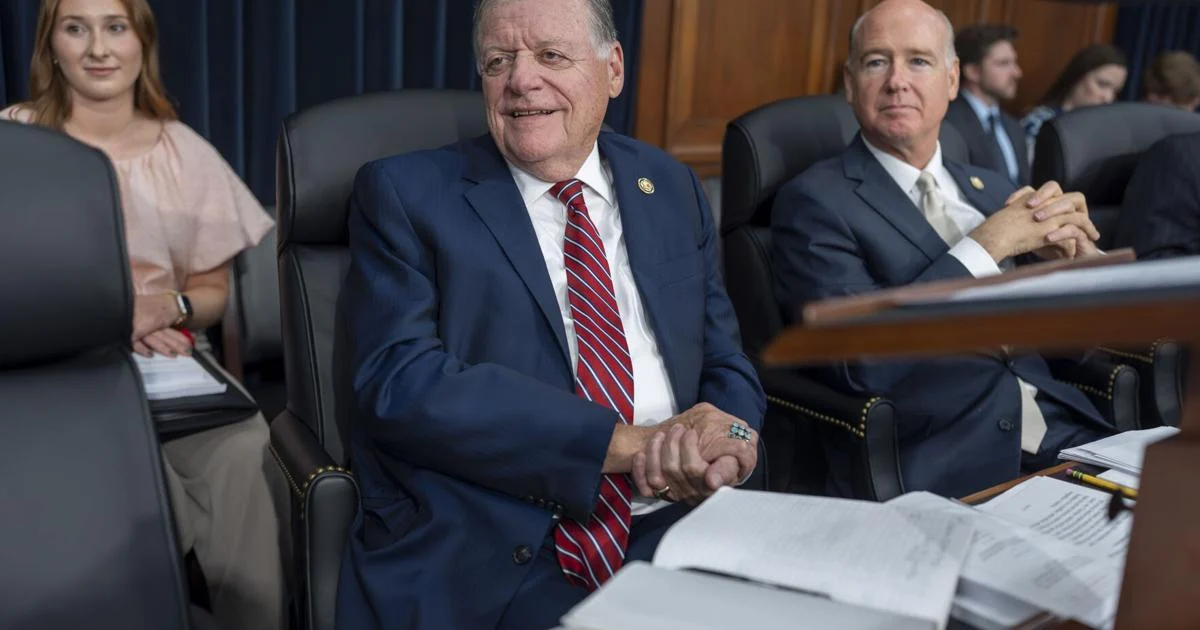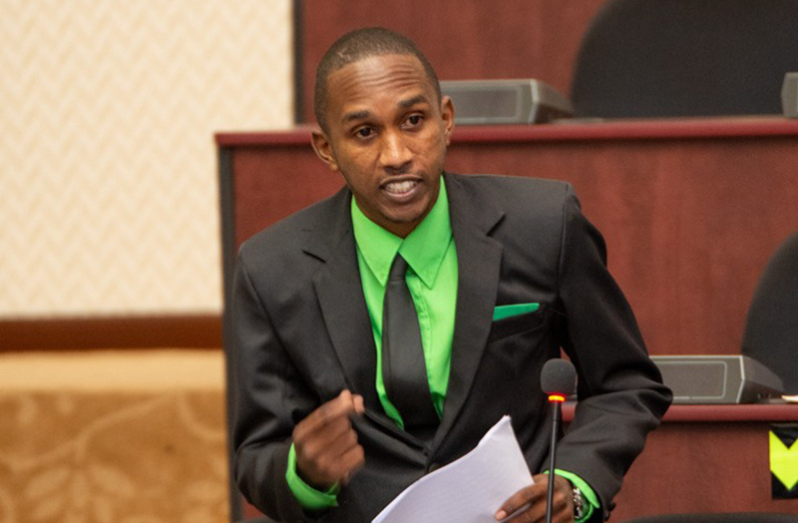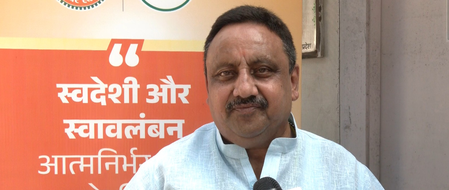
Randy Krehbiel
Tulsa World Reporter
Get email notifications on {{subject}} daily!
Your notification has been saved.
There was a problem saving your notification.
{{description}}
Email notifications are only sent once a day, and only if there are new matching items.
Followed notifications
Please log in to use this feature
Log In
Don’t have an account? Sign Up Today
Mr. Clean: As chairman of the House Appropriations Committee, 4th District Congressman Tom Cole was responsible for not only bringing a continuing resolution to the floor on Friday but getting it passed.
And that he did.
“At the beginning of this process, I was asked to produce a clean bill for a limited period of time by my colleagues on the other side,” Cole said, referring to House Democrats. “That’s what they asked to do, so … then, all of a sudden, we have extraneous demands for things unrelated to the day-to-day operation of the government.”
The demands weren’t exactly a surprise, but the CR was a little too clean for Democrats who wanted it to include an extension of Affordable Care Act insurance premium subsidies.
So when the House GOP’s bill went to the Senate later in the day, Democrats there kept it from getting getting the necessary 60 votes to advance.
The Democrats’ alternative couldn’t, either.
With House Republicans sent home until at least Oct. 1, the result is likely to be a partial government shutdown when current spending authorization expires at the end of September.
Oklahoma’s all-Republican delegation, not surprisingly, blames Democrats.
“Democrats just blocked a bipartisan plan to keep the government open while we finish appropriation bills. @SenateGOP is working for the American people, while (Senate Minority Leader Charles) Schumer plays politics to appease the far left,” tweeted U.S. Sen. James Lankford.
Democrats, though, say Republicans knew this was coming. And concern about the ACA insurance subsidies is not limited to the minority party, far left or otherwise. The most widely cited figure predicts that out-of-pocket expenses for those policies will rise 75% if the subsidies expire at the end of the year.
For the 265,000 Oklahomans benefitting from the subsidies, the Kaiser Family Foundation (not to be confused with the George Kaiser Family Foundation) projects that costs will double.
“If you want to have negotiations on these other topics, they are important topics, and they ought to be negotiated,” Cole said. But what’s happening is not some cut that’s in this bill. We are not cutting anything. A measure that my friends (support) and was passed on a bipartisan basis as I recall … is running out. OK, we should probably talk about that. You don’t do it on a CR.”
Democrats weren’t buying.
“(President) Donald Trump and the Republican Party have launched an all-out assault on health care in this country,” said House Minority Leader Hakeem Jeffries of New York. “Democrats are not going to stand for it.”
Kids today: While colleagues floated the idea of altering the fiscal year calendar to better accommodate the appropriations, the 76-year-old Cole said they ought to just work harder.
“This place breaks too much and works too little,” he told The Hill. “I would like to see more time on the calendar, particularly in June and July and in May, to get these bills done earlier so there’s not as much drama leading into September.
“Deadlines are like alarm clocks around here. Until you get to the deadline, you got too many people that don’t get serious,” he said.
Expert witness: Donnie Anderson, director of the Oklahoma Bureau of Narcotics and Dangerous Drugs Control, was among the witnesses testifying before 2nd District Congressman Josh Brecheen’s House hearing on illegal marijuana activity.
A recent Drug Enforcement Agency report says two-thirds of the marijuana it seized last year came from Oklahoma. The report said Oklahoma has at least two Mexico-based cartels operating in the state.
“This is a convergence of organized crime, human and drug trafficking, and public health risks, which all operate at a scale and sophistication that crosses state and national lines and is beyond the normal capabilities of state and local law enforcement,” Brecheen said in his prepared opening statement.
Go to the tape: U.S. Sen. Markwayne Mullin got some unwanted attention when he accused former Centers for Disease Control and Prevention Director Susan Monarez of lying based on a non-existent recording.
Mullin, who has been one of Health and Human Services Secretary Robert Kennedy Jr.’s most unstinting defenders, bore into Monarez over her account of the conversation with Kennedy that led to her firing.
“It was a recorded meeting, so you can testify one way or you can prove that you’re lying, … and I’m giving you the opportunity to be honest here, because you’ve been really walking around the edges and not being truthful,” Mullin said.
Smiling, Monarez repeated: “He told me he could not trust me, and I told him if he could not trust me, he could fire me.”
No one had previously even hinted that such a recording existed, so Mullin’s statement created something of a furor. Within a short time, HHS confirmed it that did not.
“This was incorrectly stated at the hearing. There is no recording,” said a spokesman.
Hold this: Trust land, an important element of tribal law, government and economic activity, became more complicated after a 2009 U.S. Supreme Court ruling that tribes that were federally recognized at the time of the 1934 Indian Reorganization Act were eligible for trust status.
That ruling called into question the status of many acres of land held in trust for tribes federally recognized after 1934.
In Oklahoma, the decision was somewhat muted by a combination of factors, including the terms of the Oklahoma Indian Welfare Act of 1936, but it did make putting land into trust somewhat more complicated for some tribes.
Congressional efforts to clarify the situation nationally have largely failed, but Cole and a bipartisan group of House members are giving it another go. They reintroduced language reaffirming the status of all land put into trust on behalf of a federally recognized tribe, regardless of when the recognition was granted.
“This decision has caused uncertainty and resulted in heavy legal and administrative burdens for tribes and the federal government, putting millions of dollars’ worth of trust land in legal limbo,” said Cole. “The Tribal Trust Land Reaffirmation Act will help alleviate this egregious wrongdoing and restore stability for federally recognized tribes that have land in trust.”
In a related story: Cherokee Principal Chief Chuck Hoskin Jr. testified in front of the Senate Indian Affairs Committee concerning self-governance.
“Like many tribes, we have successfully utilized self-governance to ensure better outcomes for our people in all facets of life,” Hoskin said. “Partly because of the self-governance opportunities, … each year Cherokee Nation is able to make more than $3.5 billion in strategic and locally-appropriate investments that will help our families become happier, healthier, stronger and safer.”
Hoskin was introduced by Mullin, a Cherokee citizen who related some of his experiences going to W.W. Hastings Indian Hospital in Tahlequah as a child. Mullin praised the development of the facility under the Cherokee Nation and its partnership with Oklahoma State University.
“We need the ability and the flexibility to be a sovereign nation, to see the need and fit the need to those in our own community,” Mullin said. “Cherokee Nation is something that I love to brag about, because it is an example of providing that care.”
Religious fear: Lankford and other Republican senators renewed their call for U.S. government action against Nigeria for the treatment of Christians in that country.
In a letter to Secretary of State Marco Rubio, Lankford and the others called Nigeria one of the world’s most dangerous countries for Christians and asked that it be classified as a Country of Particular Concern under the International Religious Freedom Act.
“Most recently, in late June 2025, reports suggest that at least 200 Christians in Nigeria were brutally killed by terrorists in Benue state,” the senators wrote. “This same report suggests that Nigeria is one of the most dangerous places in the world to be Christian, citing 3,100 of the 4,476 Christians killed during their reporting period lived in Nigeria.”
Dots ‘n dashes: Mullin blocked a Democratic resolution calling for the dismissal of Federal Communications Commission Chairman Brendan Carr over his role in the Jimmy Kimmel affair. … Lankford reintroduced legislation preventing colleges and universities from denying religious organizations access to campus facilities.
randy.krehbiel@tulsaworld.com
Get Government & Politics updates in your inbox!
Stay up-to-date on the latest in local and national government and political topics with our newsletter.
* I understand and agree that registration on or use of this site constitutes agreement to its user agreement and privacy policy.
Randy Krehbiel
Tulsa World Reporter
Get email notifications on {{subject}} daily!
Your notification has been saved.
There was a problem saving your notification.
{{description}}
Email notifications are only sent once a day, and only if there are new matching items.
Followed notifications
Please log in to use this feature
Log In
Don’t have an account? Sign Up Today



